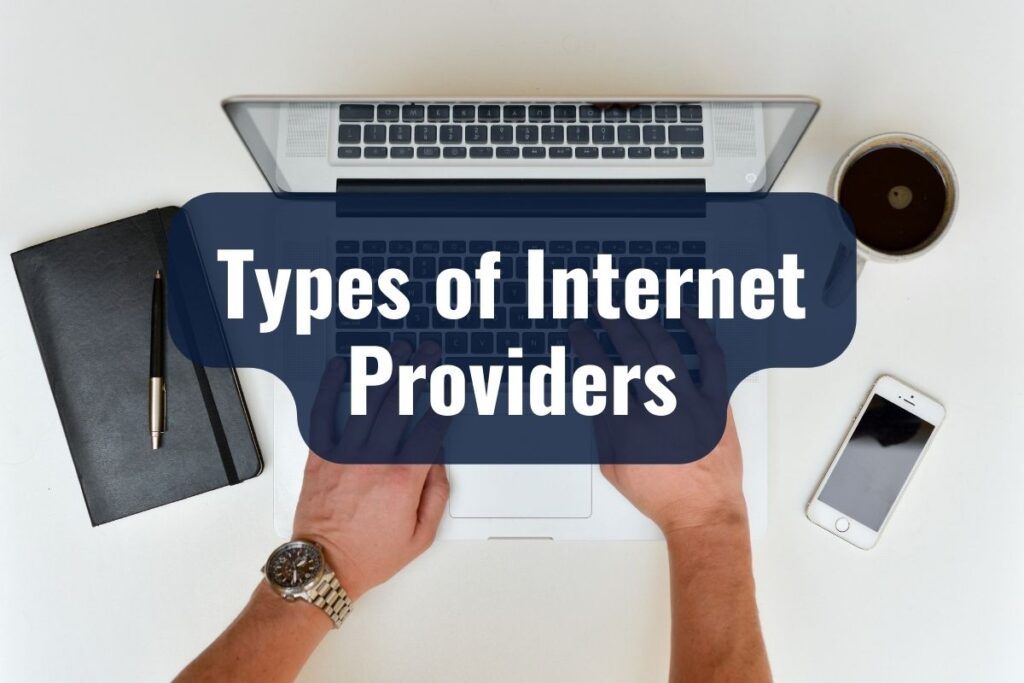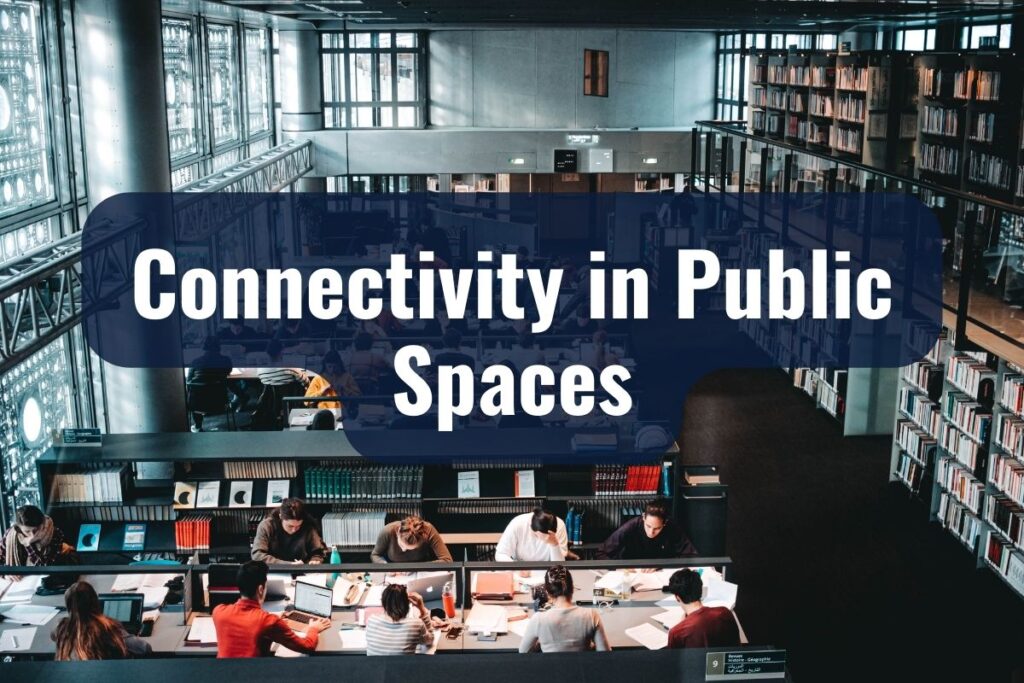In today’s world, where the internet is synonymous with day-to-day tasks, connecting with loved ones, and even professional commitments, it’s paramount to have a solid understanding of how to get the best connectivity for your needs. The Netherlands, renowned for its advanced infrastructure and efficient services, offers a myriad of choices when it comes to internet providers.
For expats, long-term tourists, students, and any non-Dutch speaker, this article seeks to illuminate the ins and outs of the internet in the Netherlands. Our guide aims to provide you with all the necessary knowledge to compare, choose, and navigate your internet needs in the Netherlands. Let’s dive in and simplify the process.
Key Takeaways:
- Multiple internet provider types, including DSL, cable, fiber-optic, and mobile networks, serve the nation.
- It’s crucial to understand internet package terminology to find the best fit for one’s needs.
- Pricing varies based on speed, contract duration, and additional services, so budget considerations are vital.
- Installation can be self-handled or managed by professionals, with a few key considerations for both.
- Public spaces in the Netherlands, from parks to train stations, often provide free Wi-Fi access.
- Non-Dutch speakers have ample resources and support to navigate the Dutch internet realm.
Internet Providers

In the bustling digital realm of the Netherlands, potential users are presented with a buffet of internet providers. These providers range from widely recognized national giants to localized operators catering to specific regions or needs. Understanding the broad categories of providers can help in making an informed decision, ensuring you get the most bang for your buck while enjoying stable connectivity.
Mainstream Providers
These are the household names in the Dutch internet arena, recognized for their extensive coverage, consistent service, and comprehensive packages. Here’s a brief look at some of the prominent ones:
KPN
Often dubbed the ‘national telecom company’, KPN has a longstanding history in the Netherlands. They offer a wide variety of services, from high-speed fiber optic internet to combined packages with TV and landline.
Ziggo
Known for its robust cable internet services, Ziggo is a favorite among many Dutch residents. Their claim to fame is the fusion of high-speed internet with expansive television packages, suitable for the entertainment enthusiasts.
T-Mobile
An international name with strong roots in the Netherlands, T-Mobile offers competitive internet packages, often combined with mobile services for those seeking an all-in-one solution.
Alternative Providers
Beyond the big players, the Dutch internet landscape is enriched by a host of alternative providers. These may not have the extensive reach of the mainstream ones, but they often present niche offerings, competitive prices, or specialized services tailored to specific user groups.
Tele2
A provider known for its budget-friendly packages, Tele2 is an excellent choice for students or those mindful of their monthly expenses without compromising on quality.
XS4ALL
With a history intertwined with internet activism and freedom, XS4ALL is not just a provider; it’s a statement. They offer reliable internet services coupled with a commitment to privacy and digital rights.
Delta and Caiway
Predominantly serving specific regions, these providers cater to areas where some of the national giants might not have a stronghold. Their localized focus often means more tailored service and dedicated customer support.
Understanding Internet Packages
Stepping into the digital domain of the Netherlands, one will swiftly encounter a diverse array of internet packages. While the myriad of options can seem overwhelming, breaking down the core components of these packages can help demystify the selection process. Here’s a practical guide to navigating the essentials:
Speed
The lifeblood of your online experience, speed is often the first factor many consider.
Mbps Explained: Mbps, or megabits per second, measures the speed of your internet connection. Essentially, the higher the Mbps, the faster and smoother your online activities will be. Whether you’re streaming, gaming, or video calling, your Mbps count plays a pivotal role.
How Much Speed Do I Need?: This often boils down to your online habits. A solitary user primarily browsing and checking emails may only require 20-30 Mbps. In contrast, a household with multiple devices streaming 4K videos might look towards 100 Mbps or higher. It’s about gauging your needs and anticipating any potential future changes.
Contract Length
Commitment matters, especially when it comes to internet packages.
Month-to-Month vs. Long-Term: While month-to-month contracts offer flexibility, especially if you’re unsure about your duration of stay, longer-term contracts (often 1 or 2 years) can come with financial perks or promotional deals.
Early Termination: Always review the terms. Some long-term contracts might have fees or penalties for early termination. It’s essential to be aware of these clauses to avoid unexpected costs.
Special Deals and Bundled Services
Internet providers often sweeten the deal by bundling additional services.
Combined Packages: Many providers offer packages that meld internet, TV, and landline services. If you’re keen on consolidating bills or seeking a comprehensive digital experience, these might be up your alley.
Promotions and Limited-Time Offers: Keep an eye out for seasonal promotions or special deals for newcomers. These can offer significant savings or upgraded services at no extra cost.
Pricing and Budget Considerations

In the Netherlands, the market offers competitive prices, but it’s crucial to be well-informed to ensure that you’re getting value for every euro spent. Let’s dissect the key facets:
Average Price Range
Basic Packages: Typically catering to light users, these can range from €20 to €30 per month. Ideal for solo users or those primarily into browsing and emails.
Mid-Range Packages: Suited for average households with multiple devices, these often hover between €30 to €50. They balance speed and additional services without breaking the bank.
Premium Packages: For the heavy users, gamers, or large households, these packages can start from €50 and go upwards. They come with the promise of lightning-fast speeds and often, a host of added services.
Hidden Fees and Charges
Installation Costs: While some providers might offer free installation as a promotional deal, others might have a one-time charge. Always enquire beforehand.
Equipment Rental: Modems or routers might come with a monthly rental fee unless you opt to purchase your own. It’s essential to factor this into your monthly budget.
Service Charges: Be wary of any additional monthly service charges or maintenance fees that might not be highlighted in the primary package price.
Tips for Negotiating a Better Deal
- Bundling Services: Providers often give discounts when you bundle internet, TV, and phone services. Explore these combined packages for potential savings.
- Loyalty Bonuses: If you’re considering staying with the same provider for an extended period, check if they offer discounts or perks for long-term commitments.
- Promotional Periods: Many providers have seasonal promotions or special offers. Timing your contract initiation during these periods might fetch you a sweeter deal.
Related: Cost of Living in the Netherlands: Everything You Need to Know
Installation Process
Once you’ve navigated the options and settled on a package, the next pivotal step is getting your internet connection up and running. The installation process, while largely straightforward in the Netherlands, does come with its own set of considerations. Let’s explore this phase in practical terms, ensuring you’re geared up for a smooth setup.
Self-Installation vs. Professional Installation
Self-Installation: Many providers offer a DIY kit, allowing users to set up their internet connection independently. This option often comes with comprehensive English instructions and is designed for those who are somewhat tech-savvy or prefer a hands-on approach.
Professional Installation: For those less confident in their installation abilities or simply seeking convenience, providers often offer professional installation services. While some might offer it for free as part of a promotion, others might charge a fee. It’s always recommended to clarify this upfront.
Timeframe
Scheduling: If you opt for professional installation, you’ll need to schedule a slot. Depending on the provider’s availability, this might range from a few days to a couple of weeks from the date of contract agreement.
Duration: The actual installation process usually takes a few hours. Ensure you’re available during this period, especially if any in-house setup or modifications are needed.
Necessary Equipment
Modem: This is the primary device that connects your home to the internet. Some providers might offer an integrated modem-router combo.
Router: Essential for Wi-Fi connectivity, the router disperses the internet signal throughout your home. Depending on the size of your residence or any specific needs, you might consider investing in an advanced router or additional extenders for optimal coverage.
Cables and Connectors: Usually included in the installation kit, these are vital for the physical setup. Always check the contents of your kit to ensure everything’s in place.
Potential Setbacks or Challenges
- Wall Drilling: In certain setups, especially where new cabling is required, there might be a need for drilling. It’s advisable to get any required permissions, especially if you’re living in a rented property.
- Language Barriers: If the installation team doesn’t speak fluent English, consider using translation apps or preparing a list of potential questions in Dutch to facilitate smoother communication.
Related: Where to Buy a Laptop in the Netherlands: Top Online Shops (2026)
Connectivity in Public Spaces

While ensuring seamless connectivity at home is crucial, the beauty of the Netherlands’ digital landscape extends beyond your front door. The country, known for its progressive infrastructure, ensures that residents and visitors alike can remain connected even when on the move. Here’s an exploration of what to expect in terms of internet accessibility in Dutch public spaces:
| Location Type | Example | Wi-Fi Availability |
| Libraries | Openbare Bibliotheek | Commonly Free |
| Parks | Vondelpark | Designated Zones |
| Train Stations | Centraal Station | Free Public Wi-Fi |
| Cafes | Starbucks | Typically Free |
| Shopping Centers | Magna Plaza | Usually Free |
| Public Transport | Amsterdam Trams | Varies |
Public Wi-Fi Hotspots
Libraries and Cultural Centers: Most public libraries, like the famous Openbare Bibliotheek Amsterdam, offer free Wi-Fi to visitors. Similarly, many cultural centers and museums ensure that guests can connect without hassle.
Parks and Recreational Areas: Many of the country’s parks, including the iconic Vondelpark in Amsterdam, have designated Wi-Fi zones. These areas enable visitors to enjoy nature while staying digitally connected.
Train Stations and Public Transport: Major train stations like Centraal Station in Amsterdam or Rotterdam’s central station provide free public Wi-Fi. Trams and buses in larger cities may also offer connectivity, though speeds can vary.
Cafes and Restaurants
Most cafes, especially chains like Starbucks or local favorites such as De Koffie Salon, offer free Wi-Fi to patrons. It’s common practice for restaurants, especially in urban areas, to provide connectivity, enhancing the dining experience.
Shopping Centers and Malls
Major shopping hubs, whether it’s the grand Magna Plaza in Amsterdam or the modern Markthal in Rotterdam, usually offer public Wi-Fi. It’s a convenience for shoppers, allowing for on-the-spot online comparisons or digital payments.
Safety and Security Concerns
- Open Networks: While public Wi-Fi is immensely convenient, be wary of non-password protected networks. Open networks can be susceptible to breaches or unwanted snooping.
- VPN Usage: If regularly accessing public Wi-Fi, consider using a Virtual Private Network (VPN). It offers an additional layer of security, ensuring your data remains encrypted and private.
- Limiting Sensitive Transactions: It’s advisable to avoid conducting sensitive activities, like online banking, when connected to public networks. Save these for your secure home connection.
Tips for Non-Dutch Speakers
Here’s a concise guide to ensure your digital journey remains smooth, even if Dutch isn’t your forte:
- English Versions of Websites:
- Most major internet providers, given the international nature of their clientele, offer English versions of their websites. Typically, there’s an option at the top or bottom of the homepage to switch languages.
- For websites that don’t offer English translations, consider using browser-based translation tools, like Google Translate. While not perfect, they provide a decent overview of content.
- Customer Support in English:
- Major providers usually have English-speaking representatives. When calling customer service, you can often request to speak with someone fluent in English.
- Live chat options on provider websites can be a boon. Not only do they offer real-time assistance, but any language barriers can be more easily managed through written communication.
- Using Expat Forums and Communities:
- Platforms like Expatica or the Amsterdam Expats Facebook group can be invaluable. They often have threads or discussions about internet providers, with insights and recommendations from fellow non-Dutch speakers.
- Such communities can also be a great place to seek assistance if you come across specific Dutch terms or phrases that you find challenging to understand.
- Review Contracts Carefully:
- While many providers offer contracts in English, if you’re presented with a Dutch-only version, consider seeking help for translation. It’s essential to understand all clauses and commitments.
- Some expats opt to use translation services for this purpose, ensuring they’re fully aware of the terms they’re agreeing to.
- Physical Stores and Assistance:
- Visiting a provider’s physical store can be helpful. Face-to-face interactions often make communication smoother, and staff in urban areas, particularly in cities with a high expat population, usually speak English.
- Such visits also provide an opportunity to see any equipment, like modems or routers, firsthand, aiding in making an informed choice.
Additional Resources
- Vergelijk.nl: This comprehensive platform allows users to compare internet packages, prices, and speeds. With an intuitive interface, it’s a favorite among locals and expats alike.
- Prijsvergelijken.nl: Focusing primarily on price comparisons, this site is ideal for those on a budget or looking for the most value for their euro.
- Speedtest.net: A globally recognized platform, it allows you to test your internet speed and ensures you’re getting what you’re paying for.
- Nperf: Tailored for the European audience, this site provides detailed speed and performance metrics.
While not specific to internet services, platforms like Interglot or Woordenlijst can help translate specific technical terms you might encounter in contracts or service descriptions.
Cities like Amsterdam, Rotterdam, and Utrecht have dedicated sections on their official websites guiding residents about local services, including internet connectivity. These sites often provide a list of available providers in the area and any specific municipal initiatives or promotions.
ConsuWijzer: This is the Dutch government’s official portal for consumer rights. It provides guidance on contracts, rights regarding internet services, and how to handle disputes with providers.